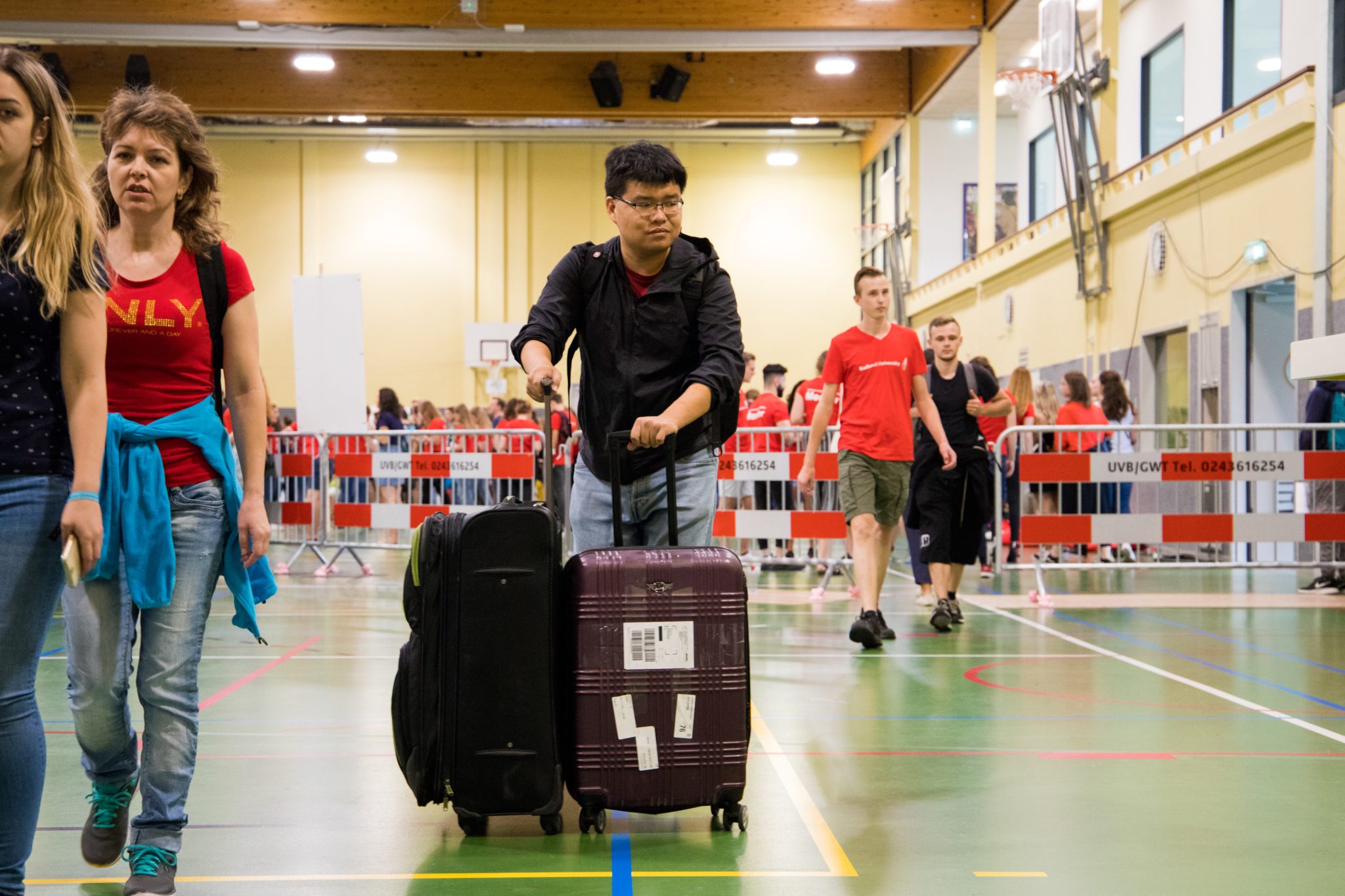More and more students come from abroad
Radboud University is more international than ever. One in seven first-year students comes from outside the Netherlands. These students can choose from among thirteen English-taught Bachelor’s programmes. A great development, of course. But isn’t it getting to be a bit much?
Just walk around Campus for a while, and listen. You’ll hear people speaking English, German, Spanish, sometimes French. Ten years ago this would have been unheard of. In 2016, internationalisation on Campus took a leap forward with six new English-taught Bachelor’s programmes. This had immediate consequences for the number of international students in Nijmegen: suddenly one in five new students came from abroad. A year earlier, it was one in ten. This year the University expects to welcome 853 international Bachelor’s students and 596 exchange students.
By 2020, the Science Faculty, a pioneer in this field, wants to teach all its programmes in English
The number of English-taught Bachelor’s programmes has also increased, from 6 to 13. And this number is expected to continue to grow. By 2020, the Science Faculty, a pioneer in this field, wants to teach all its programmes in English. The growing number of English-taught Bachelor’s programmes, in particular Psychology programmes, has attracted a lot of Germans to the City on the Waal.
Less money available
Not everyone is equally enthusiastic about the inflow of international students. In May, the Dutch universities (united under the umbrella of the Association of Universities in the Netherlands (VSNU) agreed to take steps to restrict the unbridled increase in student numbers. In particular, they intend to focus on reducing the number of international students, who represent two thirds of the increase. The reason: the government budget for higher education hasn’t increased to meet the growing student numbers for years now, which means there is less and less money available per student. Ultimately, this is a threat to teaching quality.
The VSNU forwarded their agreement to the Minister of Education, Ingrid van Engelshoven, who responded by sending her own vision on internationalisation to the House of Representatives. In this document, the Minister encourages internationalisation, but states that she is also aware of the problems. She expresses her concern about the level of English proficiency in higher education, the accessibility of certain programmes, and universities being tempted to offer English-taught tracks in an attempt to earn quick cash from international students.
Numerus fixus
Two years ago, the Nijmegen Psychology department was shocked to discover that their brand-new English-taught programme had attracted hundreds of international students. It responded by quickly introducing a numerus fixus for the following year. Van Engelshoven is considering the possibility of introducing a selection process for international students. In her New Year’s speech, Rector Magnificus of the University of Amsterdam Karen Maex challenged the Minister to formulate ‘instruments’. She said what the universities didn’t want were lecture halls with 80% of the students coming from Germany and China. Selection on the basis of nationality is not an option, as this would amount to discrimination. In Nijmegen, there are now three English programmes with a numerus fixus: Psychology, Artificial Intelligence and Biology.

The problems caused by a large influx of foreign students are not limited to the Netherlands. In Denmark, the Minister of Education recently announced that steps would be taken to reduce the influx. The reason: too many students ‘take advantage’ of free Danish education, only to return to their country of origin after graduation. We’re lining the pockets of the labour market in other EU countries, said the Danish Minister in a press conference. The Danes now want to check which international graduates leave soon after completing their English or Danish study programme, or are unable to find work. They then plan to introduce a ‘labour market fixus’ for these study programmes.
In the Netherlands, international students tend to stick around after graduating, as apparent from new figures by the educational organisation Nuffic. One year after graduation, 60% of internationals still live in the Netherlands. Five years later, 20% of them still do. Compare this with Denmark, where two years after graduation there are only 30% of internationals left. However, the same Nuffic figures also show that internationals are quick to leave Nijmegen. Nijmegen internationals may remain in the Netherlands after graduation, but they quickly relocate to the Randstad region or to a technology hub like Eindhoven.
Tents
In September, students occupied the University of Groningen Academy Building. They demanded that the Board of the University devise a solution (preferably for free) for international students forced to sleep in tents, and speak up against the current grant system. The University had previously sent its staff a letter, asking them to welcome an international student into their home.
The Nijmegen organisation SSH& is also struggling to keep up with demand. The student housing agency found accommodation for eight hundred new international students in ‘short-stay’ accommodation: rooms for one year. If students want to stay longer, they have to find regular accommodation for themselves.
Nijmegen doesn’t have such pressing accommodation problems as Groningen
The International Office found accommodation for the remaining 200 students on the private rental market. ‘To do so we partnered up with private parties, such as Dornick BV, owned by real estate agent Ton Hendriks, Guesthouse Nijmegen and Bungalow Park De Zeven Heuvelen,’ said Head of the International Office Wessel Meijer.
Nijmegen doesn’t have such pressing accommodation problems as Groningen. ‘In Nijmegen, the number of international students isn’t growing by leaps and bounds like it is in Groningen, Wageningen, Delft and Amsterdam,’ says Meijer. ‘This makes it easier to respond to the demand.’



